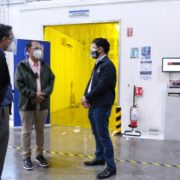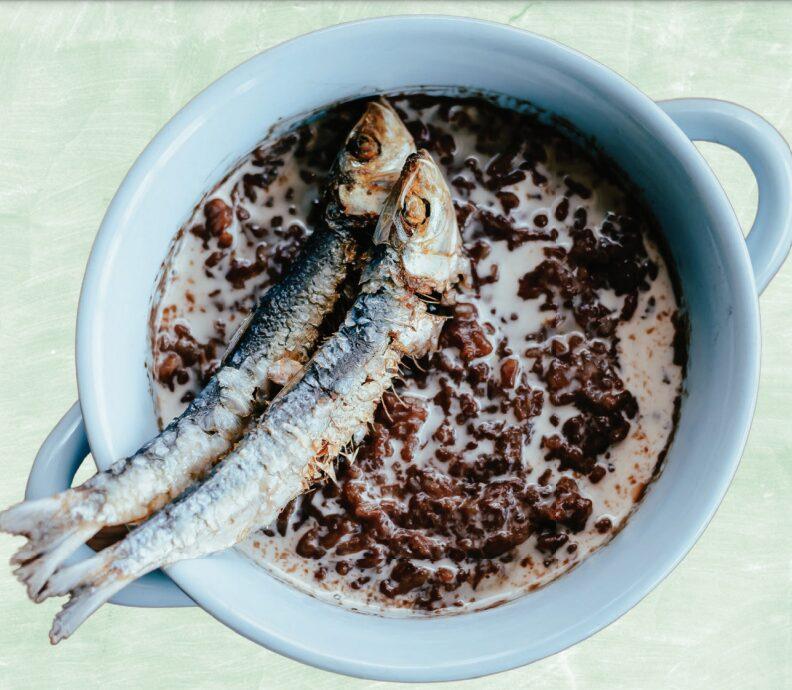
The Philippines is ready for the arrival of COVID-19 vaccines following the inspection of several cold storage facilities by COVID-19 task force officials on Wednesday.
Inter-Agency Task Force (IATF) Chairperson and Health Secretary Francisco Duque III, who led the inspection team, expressed confidence that the vaccines will be properly stored and handled as soon as they arrive.
“We are quite gratified with what we have seen in our inspection. So far, what we have seen suggests very strongly (that) there is adequacy of cold storage facilities across the three different temperature ranges, the +2 to +8, -20, and -70 to -80,” Duque said.
Vaccine czar and National Task Force against COVID-19 chief implementer Carlito G. Galvez, Jr. shared Duque’s observations after visiting the storage facilities of pharmaceutical firms Unilab and Zuellig Pharma, and the government’s own Research Institute for Tropical Medicine (RITM).
“Now we can say that we are ready because all of the requirements that we have for cold chain — we have more than enough,” Galvez said.
“This is a joint effort between the private sector and the government sector in really saving lives and saving our economy. It is most important that we recover our lost way of life,” the vaccine czar added.
Private Sector Answers The Call
The inspection team’s first stop was Unilab’s Pharma Campus in Biñan City, Laguna. The facility can house five million doses of vaccine at temperatures of 2 to 8 degrees centigrade.
Albert Cruz, director of Unilab subsidiary First Pioneer Distribution, Inc. (FPDI), detailed the features of the company’s cold storage facility.
“(This facility) is well-secured, the temperature is always stable, at napapatunayan po ito ng isang high-tech alarm system na 24/7 nag-ooperate. When the temperature fluctuates, it will send a message to the engineers and to myself para alam namin kung nawawala sa temperature range,” Cruz said.
Meanwhile, Unilab Senior Vice-President for Partnership Jose Maria Ochave, expressed the company’s commitment to help the government in the country’s battle against COVID-19.
“When we go into partnership with the government for the warehousing and logistics for the COVID-19 vaccines, I can assure you it’s going to be done as a service, and not as a business,” Ochave said.
“We would like to thank Unilab for your continued support in our fight against COVID-19. You have been helping us since the start of the COVID-19 pandemic,” Galvez said in response.
The inspection team also visited the cold chain facilities of Zuellig Pharma, which has the capacity to maintain three temperature ranges as required by the different vaccines.
Zuellig can store a total of 650 million doses of vaccines requiring temperatures of 2 to 8 degrees centigrade; 40 million doses for those within the -20 degrees centigrade range, and; 6.5 million doses for vaccines requiring storage temperatures of -70 to -80 degrees centigrade.
Zuellig Philippines CEO Maikel Kuijpers thanked the Philippine government for giving the company the opportunity to contribute in the nation’s fight against COVID-19.
“We are thankful to be a partner of the Philippine government, servicing the market access needs with national and local government healthcare units, including partnerships with DOH, government hospitals, government clinics, and LGU healthcare units,” Kuijpers said.
“We are increasing our capacity since the start of the pandemic to ensure that we are ready to receive and distribute COVID 19 vaccines from different manufacturers and with different storage requirements,” he added.
Duque outlined the requirements third-party logistics providers need to comply with in order to become part of the national vaccine program’s logistics chain.
“Ayaw natin na isang third party logistic provider na hindi niya kaya lahat gawin. Ang ideal scenario, end-to-end supply chain system adequacy and readiness. Hindi pwede ‘yung process A to C kanya and D to F isu-subcontract sa iba,” Duque said.

Government Facilities Ready To Augment
The inspection team also went to the Research Institute for Tropical Medicine (RITM) to assess its current capacities. The facility has been designated as the country’s national vaccine storage hub since 2019.
At present, RITM has four cold rooms for the storage of vaccines within the 2 to 8 degrees centigrade temperature range, one walk-in freezer for those within the -20 degrees centigrade range, and five ultralow temperature freezers for vaccines that need to kept within -70 to -80 degrees centigrade.
The cold rooms are currently at 93.01% capacity, while the walk-in freezer is at 50.89% capacity. The ultralow temperature freezers are still unutilized.
The RITM is stores vaccines for flu, Hepatitis B, rabies, and measles, among others.
Vaccine Timeline
Though some of the vaccines are expected to arrive in the country in the first quarter of 2021, Galvez said the bulk of the expected 148 million doses will come in by the third or fourth quarter.
“We are negotiating for early delivery (than third quarter),” Galvez said, as he also confirmed the arrival of vaccines donated by other countries.
“We have already confirmed that 500,000 doses of Sinovac will be donated by China. Once the EUA (emergency use authorization) is approved, they can deliver immediately. We are negotiating with two more countries, for two products, but we cannot disclose yet,” he said.
—
Stay updated with news and information from the NTF-Against COVID-19 by following them on Facebook at https://web.facebook.com/ntfcovid19ph.






